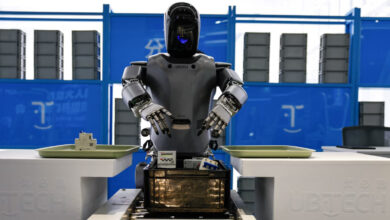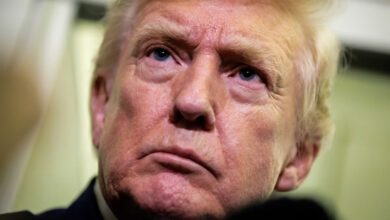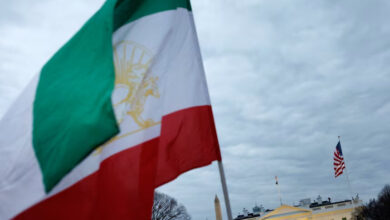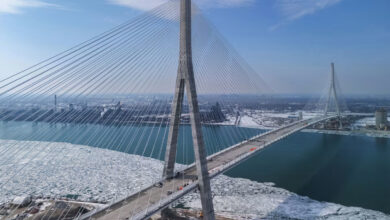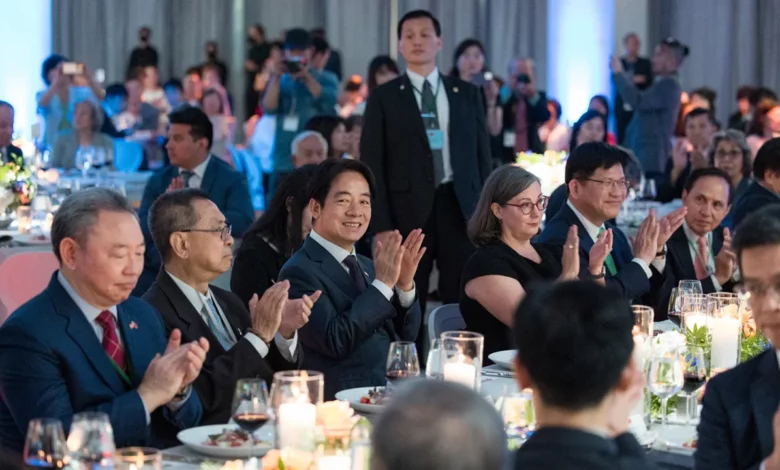
William Lai, a front-runner in Taiwan’s presidential race in January, made a stop in New York en route to Paraguay, where he will attend the inauguration of its new president Tuesday.
The South American country is one of only 13 states that maintain formal diplomatic relations with Taiwan, a self-governing democracy that China’s ruling Communist Party claims as its own territory despite having never controlled it.
In a speech to supporters at a lunch banquet in New York, Lai portrayed Taiwan’s long-term survival as something the international community should take an interest in.
“When Taiwan is safe, the world is safe, and when there is peace on the Taiwan Strait, there will be world peace,” Lai said, according to Taiwan’s presidential office.
“No matter how great the threat of authoritarianism is to Taiwan, we absolutely will not be scared nor cower, we will uphold the values of democracy and freedom.”
Lai’s comments came after China’s foreign ministry condemned his stopover, calling Lai a “trouble maker through and through.”
It said China firmly opposes any official interaction between the US and Taiwan and any “‘Taiwan independence’ separatists to the US.”
Taiwan and the US have both said that Lai’s transits, including a stop in San Francisco on his way back Wednesday, are routine.
“These transits of senior officials are unofficial, in keeping with our US One China policy,” a senior administration official told CNN on July 16, calling such transits “fairly common.”
Lai last transited the US in January 2022.
Lai, 63, hails from the so-called “deep green” faction of the ruling Democratic Progressive Party (DPP) – known for its more openly pro-independence leanings.
The Harvard-educated doctor-turned-politician has previously called himself a “pragmatic worker for Taiwanese independence.”
That has made him particularly loathed by Beijing, which has not renounced the use of force to take the self-ruled island.
Since winning the DPP nomination, however, Lai has adopted a more moderate line on China.
Under the leadership of Xi Jinping, Beijing has ramped up economic, diplomatic and military pressure on Taiwan, particularly after the 2016 election of President Tsai Ing-wen, who won a second term in 2020.
Under Taiwan’s constitution, Tsai cannot stand for a third term.
Taiwan’s election will take place in January and could have profound consequences for international relations at a time of intense scrutiny over whether Xi might one day follow through on his vow to “reunite” the island with China.
The DPP’s historical challenger is the Kuomintang, a political outfit that was once the bitter enemy of China’s Communist Party but has since morphed into a party that favors much closer relations with Beijing.
Trips to the US by Taiwan’s officials are referred to as “transits” instead of visits because the US does not have formal diplomatic relations with the government of Taiwan and the stopovers come as part of an unofficial trip en route to another destination.
In March, Taiwan’s President Tsai transited in California and met with US House Speaker Kevin McCarthy, despite warnings and threats from Beijing. Following Tsai’s trip, China launched three days of live-fire military drills around Taiwan.
CNN’s Alex Stambaugh and Heather Chen contributed reporting.

